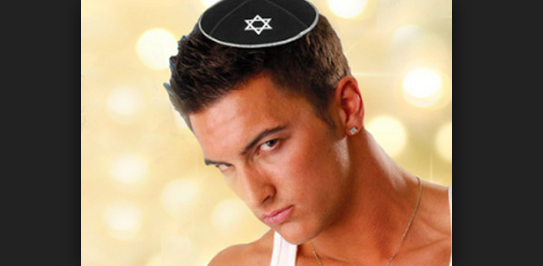
“How would you rank the attractiveness of female Jews on your campus?”
Does this question bother you? It certainly would bother me, regardless of the circumstances. What if it were being utilized as a question to determine the “Best Jewish Campus” in the country? Would it bother you more? For me the answer is a definitive yes.
Well guess what? This question, along with “How would you rank the attractiveness of male Jews on your campus?” (at least they’re balanced, I guess…) and many others I find problematic, is being used precisely for that purpose by the Jewish Telegraphic Agency.
The survey is seventeen questions long, not counting questions that ask the participants’ name and college. It commences with questions regarding campus’s Hillels, Chabad, Greek life, and Kosher food. Participants have 5 boxes to choose from for each question, ranging from “there is no Hillel/Chabad/Greek life” on my campus to “I love it/it’s great.” These questions are problematic for a few reasons. First, they assume that there is a direct relationship between quantity of Jewish organizations on campus and quality of Jewish campus life. That assumption might not hold in the end. Often schools with a great number of Jewish organizations have trouble creating a unified Jewish life of any sort, because the groups spend much of their time fighting amongst each other to “get” Jews to participate in programming.
With regard to Jewish Greek life, once again it assumes that more is better. Once again, that assumption is questionable. I myself am part of a Jewish fraternity at Brown for which Jewish identity is definitely part of our identity. But it is by no means the most central part of what we do, and we have a number of non-Jews in the house, along with Jewish men who might not see Jewish life as a primary part of what we exist to do. This is not meant as a lament. My fraternity has done a great deal to help me grow as a person, and to some extent as a Jew. For many Jewish fraternities and sororities, however, Judaism plays a fairly minor role in their culture. While there are many exceptions, assuming that more Greek life = more Judaism, therefore, might be a flawed assumption.
Furthermore, the survey asks students to rank the “best” sorority and fraternity on their campuses. For the sorority question, it offers three options: Alpha Epsilon Phi, Sigma Delta Tau, and Sigma Alpha Epsilon Pi. As Northwestern alumnus Ben Goldberg mentions in his comment on JTA’s facebook page that “the survey doesn’t consider the possibility that those three sororities or fraternities don’t exist on a given campus, yet this is a required question.” My campus does not have a Jewish sorority. In order to successfully fill out the survey, though, I had to check a box. So I was forced to check the Alpha Epsilon Phi box, because without doing so I would not be able to submit a survey at all.
A little later we get to the aforementioned questions about attractiveness. Here, participants can choose between Jewish students being “ugly,” “below average,” “average,” “above average,” and “hot.” These two questions (one for females and one for males) are spectacularly problematic. There is no question about how intelligent Jewish students are. There is no question about how artistic, or thoughtful, or happy Jewish students are. But there is one asking whether or not your Jewish friends are sexy. Assuming that a campus with better hair, breasts, or biceps is a better one for Jewish students is downright offensive.
Next we have three questions about Israel. The first, “How would you rate the Israel activism and programming on your campus?” doesn’t seem too problematic, although some might argue it should say Israel/Palestine. The second asks participants to denote whether campus culture is “mostly pro Israel,” “balanced,” or “mostly anti-Israel.” While I have no way of knowing how this question will be quantified by the JTA, I would guess that “mostly pro Israel” is counted as better than “mostly anti-Israel.” That value judgment, if it is being utilized, would suggest that anti-Israel sentiment is un-Jewish, because its presence would make a campus worse for the Jews. Because many Jewish students are involved with these anti-Israel groups (they would probably prefer pro-Palestine as a descriptor), that judgment is suspect.
Finally, I would like to discuss the complete lack of long-answer questions. There is not even one question where survey-takers are asked to state, with words, what Jewish life on their campus looks like. No opportunity to discuss the Reform temple down the street where students often teach Hebrew school. No chance to mention how the ultimate frisbee team, while not a Jewish organization, hosts a Passover seder every year. These are the kinds of anecdotes that can actually provide insights into the quality of Jewish life on a given campus, but there is no space for them.
It is incredibly disappointing for an agency as well-known as the JTA to create a survey like this. We hope that if a sequel, the “Best Jewish news organization survey,” comes next, you find New Voices staff members to be sufficiently sexy to warrant your support.

